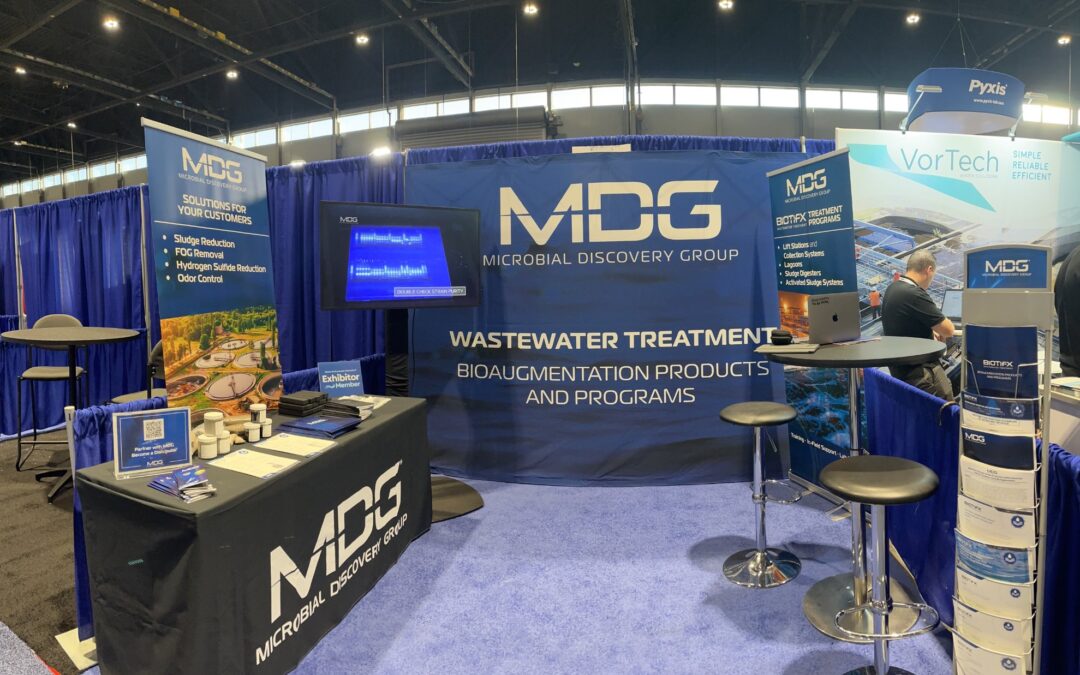This is MDG The: Podcast with experts in the field of microbiology, teaching us about the world we live in and how Bacillus is shaping it. We put this summary together taken from the transcript, for more details and to hear straight from Jenny, head to the podcast!

Listen and Subscribe: on Podcast Page, Apple Podcast, Spotify
The Episode
What is Bacillus?
A naturally occurring bacteria, Bacillus, are put to work in many industries for their diverse capabilities such as the human and animal, plant, wastewater, and industrial and institutional and consumer (IIC) markets.
How are Bacillus able to use their unique properties to clean?
Bacillus bacteria are effective in IIC applications because they can digest substances like carbohydrates, fiber, and fats, oil, and grease (FOG). They release enzymes and some produce beneficial compounds like biosurfactants that help to break down stains.
What types of applications do you recommend for microbial cleaners?
Microbial cleaners are effective cleaning and odor-reduction solutions. They are able to clean and reduce odors in various applications by reaching hard-to-clean places like carpets, grout, or porous surfaces and digest the soils accumulated there. This makes them a valuable and effective cleaning solution.
How do microbial cleaners compare to traditional cleaners?
When talking about traditional cleaning products, typically we’re referring to products with many chemical components that can be harsh, such as disinfectants like bleach, chemical cleaners with synthetic surfactants, or caustic drain cleaners. These types of cleaners are effective and have a place in certain applications. Disinfectants, for example, are designed to kill bacteria and remove potentially pathogenic organisms, but don’t clean. Cleaning is physically removing the dirt but doesn’t kill the present microbes. Microbial-based cleaners are not good substitutes for disinfectants, but are great cleaners, as in reducing soils, stains, and odors.
How do microbial cleaners contribute to environmental sustainability?
Microbial cleaners are environmentally friendlier, containing live organisms and gentler chemical components.
What is the shelf life of a microbial cleaner?
Bacillus-based products are shelf-stable because they form dormant spores, yet are still alive and able to sense their environment, they can last for years in dry powder form. When they are exposed to the right combination of moisture, nutrients, and temperature, they will activate and grow, which can make blending with water-based liquids challenging. Liquid products when formulated correctly typically have a shelf life of one to two years.
Are there any special considerations manufacturers need to be aware of when blending or formulating microbial products?
Blending practices and formulations have a huge impact on product quality and efficacy, especially in microbial products. The most important consideration when working with these products is to mix well as bacteria can to settle out, unless you’re formulating with a rheology modifier. The microbes are the active ingredient in these formulas, so good blending practices go a long way to ensure consistent, effective product. Because the microbes are the star of the show in these products, it’s important to make sure the ingredients in your formula are compatible with them. Preservatives need to be present to ensure that microbial growth isn’t happening in the bottle before application. However, over preserving can lead to damaging or severely delaying bacterial efficacy in the end use application. You also want to stay away from including harsh ingredients that could lead to extremely acidic or alkaline conditions as well. This could impact bacterial performance. Careful formulations and thorough blending together will keep the integrity of your bacterial ingredients intact for the end user.
Are there any general use guidelines for consumers to consider when using microbial products?
Microbial products contain live organisms thus they take time to work and may require repeated applications, especially for tough stains. Avoid exposing them to extreme conditions, such as harsh chemical cleaners or boiling water, immediately before or after application. Following those guidelines will help ensure that the microbes have everything they need to get to work cleaning for you.
About the Guest:
Jenny is a Microbiologist III supporting our Industrial, Institutional and Consumer (IIC) market. She has over 10 years of laboratory experience and has dedicated most of her career to working with Bacillus. She was drawn to MDG because of our mission to feed, clean, and save the world, along with the fact that we use Bacillus-based solutions to help us toward this goal.
In her current role, Jenny works closely with new and existing IIC customers to provide blending and formulation guidance, product and application solutions, and laboratory support. As a member of our R&D team, Jenny also continues to look for ways to improve our current products and develop our future offerings in this market.
If you like what you’ve read and heard, visit our website to speak with one of our representatives: https://www.mdgbio.com/industrial-institutional-contact/









